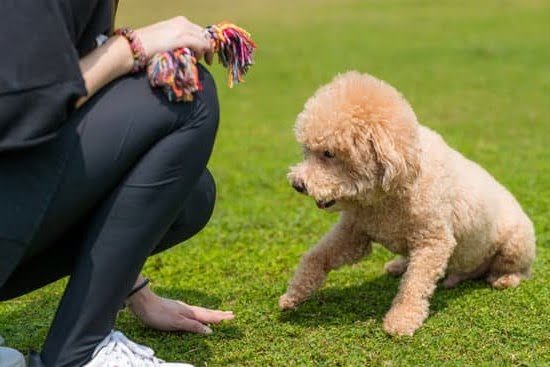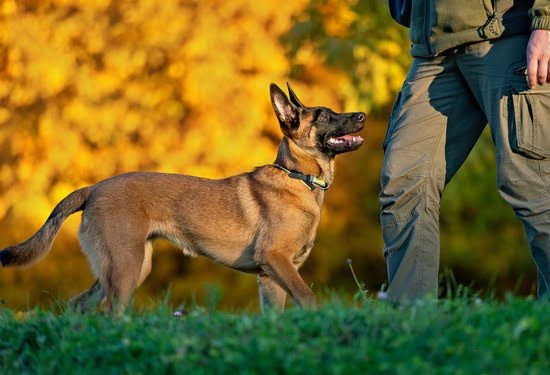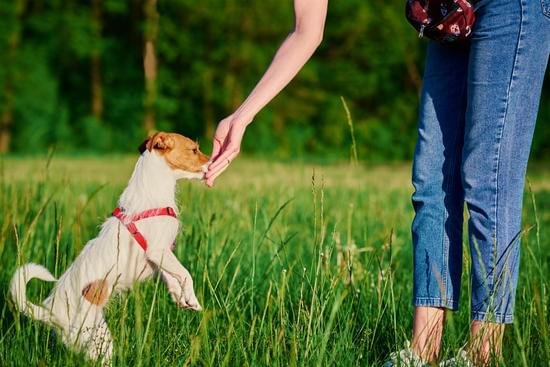Have you ever wondered, “Can I train a dog that’s not a puppy?” The myth of “You can’t teach an old dog new tricks” has been around for ages, leading many to believe that training older dogs is a lost cause. However, this couldn’t be further from the truth. With the right approach and understanding, training older dogs is not only possible but also immensely beneficial for both the dog and the owner.
In this article, we will explore the intricacies of training mature dogs, debunking the myth that age is a barrier to learning. We will delve into the benefits of training an older dog, as well as address potential challenges that may arise. Additionally, we will provide insights into tailoring training methods specifically for older dogs, emphasizing the importance of patience and trust in the process.
Training an older dog presents unique opportunities for bonding and building a strong connection with your canine companion. By understanding the myths surrounding older dog training and embracing effective techniques, you can embark on a fulfilling journey of companionship and shared learning experiences with your mature pet. So, let’s unravel the truth about training older dogs and empower ourselves to nurture our furry friends at any age.
Benefits of Training an Older Dog
Many people believe that training a dog is only effective when they are still puppies. This is not the case, as training an older dog can offer numerous benefits for both the dog and its owner. One of the main advantages of training a mature dog is their ability to focus for longer periods compared to younger dogs. This allows them to grasp commands quicker and respond more effectively to training.
Training an older dog also contributes to their mental stimulation, which is crucial in maintaining their overall well-being. It helps prevent boredom, anxiety, and destructive behavior that may arise from lack of mental activity. Additionally, a well-trained older dog tends to have better social interactions with humans and other animals, making them more adaptable in various environments.
Another benefit of training an older dog is the opportunity for pet owners to improve their relationship with their furry companions. The bonding experience during training sessions can strengthen the trust between the dog and its owner, creating a deeper connection between them.
| Benefit | Description |
|---|---|
| Improved focus | Mature dogs have longer attention spans, making them quicker to learn commands |
| Mental stimulation | Training prevents boredom, anxiety, and destructive behavior while keeping older dogs mentally active |
| Enhanced relationships | Training provides opportunities for bonding and building trust between pet owners and their mature dogs |
Understanding the Challenges
Training an older dog can come with its own set of challenges. Unlike puppies, older dogs may have established behaviors and habits that are more difficult to modify. Additionally, they may have health issues or physical limitations that could affect their training. Understanding these challenges is crucial in order to effectively train and communicate with an older dog.
One common challenge when training older dogs is their potential resistance to change. Older dogs may be set in their ways and less open to new commands or routines. This resistance can often be mistaken for stubbornness, but it is important for owners to approach training with patience and understanding. By acknowledging this challenge, dog owners can adjust their training methods accordingly and work towards gradually introducing new behaviors.
Furthermore, behavioral issues such as anxiety or fearfulness may also present obstacles during training. Older dogs may have had experiences that shaped their behavior, and addressing these underlying issues is essential in successful training. It’s important for dog owners to recognize these challenges and seek guidance on how to tailor training methods to address them effectively.
| Challenges | Implications |
|---|---|
| Resistance to change | Requires patience and understanding in training |
| Behavioral issues | Might need specific techniques tailored to address them |
Tailoring Training Methods for Older Dogs
When it comes to training older dogs, it’s important to understand that their needs and learning abilities differ from those of puppies. Tailoring training methods for older dogs is crucial in ensuring a successful and effective training process. Unlike puppies, older dogs may have established habits and behaviors that require a different approach.
Understanding the Differences
One of the key factors in tailoring training methods for older dogs is recognizing the differences between training a puppy and an older canine companion. While puppies are often more energetic and curious, older dogs may have physical limitations or health issues to consider. Understanding these differences allows dog owners to adjust their training techniques accordingly.
Emphasizing Patience and Consistency
When working with an older dog, patience and consistency are essential components of successful training. Older dogs may take longer to learn new commands or behaviors, so it’s important not to rush the process. Consistent reinforcement of positive behavior and regular training sessions can help older dogs adapt to new expectations.
Adapting to Individual Needs
Each older dog has unique needs and preferences, so it’s important to adapt the training methods to fit their individual personality and behavioral patterns. Some older dogs may respond better to specific rewards or forms of motivation, while others may require a gentler approach due to past experiences or behavioral challenges. By tailoring the training methods to meet the specific needs of each dog, owners can ensure a more personalized and effective training experience.
By tailoring training methods for older dogs, dog owners can create a positive and supportive environment for their mature canine companions. Understanding the differences, emphasizing patience and consistency, as well as adapting to individual needs are all essential aspects of successfully training an older dog. With the right approach, dedication, and understanding, older dogs can certainly learn new tricks and behaviors that contribute to their overall well-being and strengthen their bond with their human companions.
Importance of Bonding and Trust
The training of older dogs goes beyond teaching them new commands and behaviors; it also involves establishing a strong bond and trust between the dog and its owner. Building a deep connection with an older dog is essential for successful training and a harmonious relationship. This section will delve into the significance of bonding and trust in the training process, offering insights on how to cultivate these vital elements.
Establishing Trust Through Patience and Understanding
Older dogs may have lived through various experiences, some of which might have led to insecurities or anxieties. Therefore, it is crucial for owners to approach training with patience and understanding. Rushing the process or exhibiting frustration can hinder trust-building efforts. By being patient and empathetic towards the dog’s needs, owners can create an environment conducive to trust development.
Building a Strong Bond Through Positive Reinforcement
Positive reinforcement plays a pivotal role in strengthening the bond between an older dog and its owner. Using treats, praise, and affection as rewards for good behavior fosters a sense of companionship and mutual respect. Engaging in activities that the dog enjoys, such as playtime or walks, further enhances the bond between the two parties. Consistent positive interactions help solidify the connection and establish trust.
Communication as a Tool for Bonding
Effective communication is key to building rapport with an older dog. Understanding their body language, vocalizations, and expressions allows owners to connect with their canine companions on a deeper level. By paying attention to subtle cues and responding appropriately, owners can convey their empathy and care for their older dogs, thereby nurturing a strong bond based on trust.
Basic Training for Older Dogs
Training an older dog can be a rewarding experience, and providing them with basic commands and obedience training is essential for their overall well-being. While it may require some adjustments compared to training a puppy, older dogs are fully capable of learning and adapting. Here are some tips for basic training for older dogs:
- Start with the basics: Begin with simple commands such as sit, stay, and come. Use positive reinforcement techniques such as treats and verbal praise to encourage good behavior.
- Be patient and consistent: Older dogs may take longer to learn new commands, so patience is key. Consistency in your training methods will help reinforce the desired behaviors.
- Use gentle guidance: Avoid using harsh training methods or punishment, as this can be counterproductive and cause distress for the older dog. Gentle guidance and positive reinforcement are more effective in promoting learning.
It’s important to remember that every dog is unique, so it’s essential to tailor the training approach to your dog’s individual needs and personality. Some older dogs may have specific behavioral challenges that require extra attention and specialized techniques. By understanding your dog’s temperament and history, you can adapt your training methods accordingly.
In addition to basic commands, building a strong bond with your older dog is crucial for successful training. Establishing trust and a positive relationship will create a solid foundation for further obedience training. With the right approach and commitment, teaching basic commands to an older dog can strengthen the bond between you and your canine companion while enhancing their quality of life.
Addressing Specific Behavioral Challenges
When working with older dogs, it’s important to acknowledge that they may have developed specific behavioral challenges over the years. Addressing these issues requires patience, understanding, and tailored training methods. Here are some common behavioral challenges in older dogs and tips on how to address them:
- Fearfulness: Older dogs may become more fearful due to various factors such as changes in their environment or past experiences. When dealing with a fearful older dog, it’s essential to create a safe and reassuring environment. Avoid forcing the dog into uncomfortable situations and instead, use positive reinforcement techniques to build confidence.
- Anxiety: Just like humans, older dogs can experience anxiety. Separation anxiety and noise phobias are common in mature canines. When tackling anxiety in older dogs, establishing a predictable routine can be beneficial. Additionally, providing a comfortable space or den for the dog to retreat to can help alleviate anxiety.
- Aggression: Some older dogs may exhibit aggressive behavior due to fear, pain, or territorial issues. It’s crucial to identify the root cause of the aggression and address it accordingly. Working with a professional trainer is highly recommended when dealing with aggression in older dogs.
By understanding and addressing specific behavioral challenges in older dogs, dog owners can create a harmonious and stress-free environment for their beloved companions.
Remember that every dog is different, so patience and consistency are key when addressing behavioral challenges in older dogs. Seek professional guidance if needed, as trained professionals can provide valuable insights and support for managing complex behavioral issues in mature canines.
Seeking Professional Help
When it comes to training an older dog, some behavioral challenges may arise that require the expertise of a professional dog trainer. While many dog owners successfully train their mature canine companions on their own, certain cases may benefit from the guidance and support of an experienced trainer. For example, if an older dog exhibits severe anxiety, fearfulness, or aggression, seeking professional help can provide valuable insights and techniques to address these issues effectively.
Professional dog trainers have a deep understanding of canine behavior and psychology, allowing them to assess and address specific challenges that an older dog may be facing. They can customize training programs tailored to the individual needs of the dog and provide expert guidance to the owner on how to manage and modify problematic behaviors. Additionally, a professional trainer can create a safe and controlled environment for addressing more complex behavioral issues in older dogs.
Finding the right trainer for older dog training is crucial for achieving positive results. Dog owners should look for certified trainers with experience in working with mature dogs. It’s important to research potential trainers thoroughly, read reviews, and seek recommendations from other pet owners. By enlisting the help of a professional with expertise in older dog training, dog owners can set their pets up for success and ensure a positive training experience for both the dog and themselves.
Conclusion
In conclusion, the belief that you can’t teach an old dog new tricks is indeed a myth. As highlighted throughout this article, training older dogs is not only possible but also comes with numerous benefits. By understanding the challenges, tailoring training methods, emphasizing bonding and trust, and addressing specific behavioral issues, dog owners can successfully train and bond with their mature canine companions.
The journey of training an older dog may have its obstacles, but the rewards are plentiful. Not only does proper training improve the dog’s behavior and overall well-being, but it also strengthens the bond between the owner and their furry friend.
With patience, consistency, and understanding, even older dogs can learn basic commands and obedience. Additionally, by seeking professional help when needed, dog owners can address more challenging behavioral issues and ensure a positive training experience for both themselves and their pets.
Ultimately, empowering dog owners to embrace the process of training older dogs is crucial. As they invest time and effort into understanding their pet’s needs and using effective training techniques, they will find the experience to be rewarding for both them and their mature canine companions. By debunking the myth that only puppies can be trained effectively, this article aims to encourage dog owners to take on the enriching journey of training and bonding with their older dogs.
Frequently Asked Questions
Is It Possible to Train an Older Dog?
Yes, it is possible to train an older dog. While it may require more patience and consistency compared to training a younger dog, older dogs can still learn new commands and behaviors. It’s important to understand the dog’s previous experiences and any potential behavioral issues that may need to be addressed in the training process.
Is 2 Years Old Too Late to Train a Dog?
No, 2 years old is not too late to train a dog. Dogs of all ages can benefit from training, including socialization, obedience, and manners. It may take some extra time and effort, but with the right techniques and positive reinforcement, a 2-year-old dog can still learn new skills and behaviors.
Is It Easier to Train a Puppy or a Dog?
Generally speaking, it is often easier to train a puppy compared to an adult dog. Puppies are more impressionable and adaptable to learning new commands and behaviors.
Additionally, they have not yet formed as many habits or developed strong behavioral patterns that may need to be changed through training. However, every dog is unique, so the ease of training can also depend on the individual personality and experiences of each particular dog.

Welcome to the blog! I am a professional dog trainer and have been working with dogs for many years. In this blog, I will be discussing various topics related to dog training, including tips, tricks, and advice. I hope you find this information helpful and informative. Thanks for reading!





